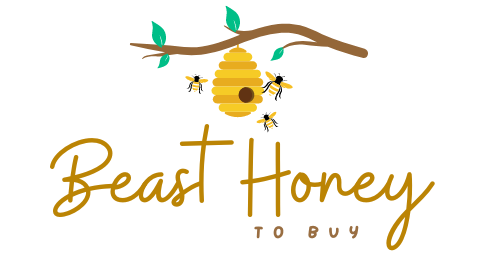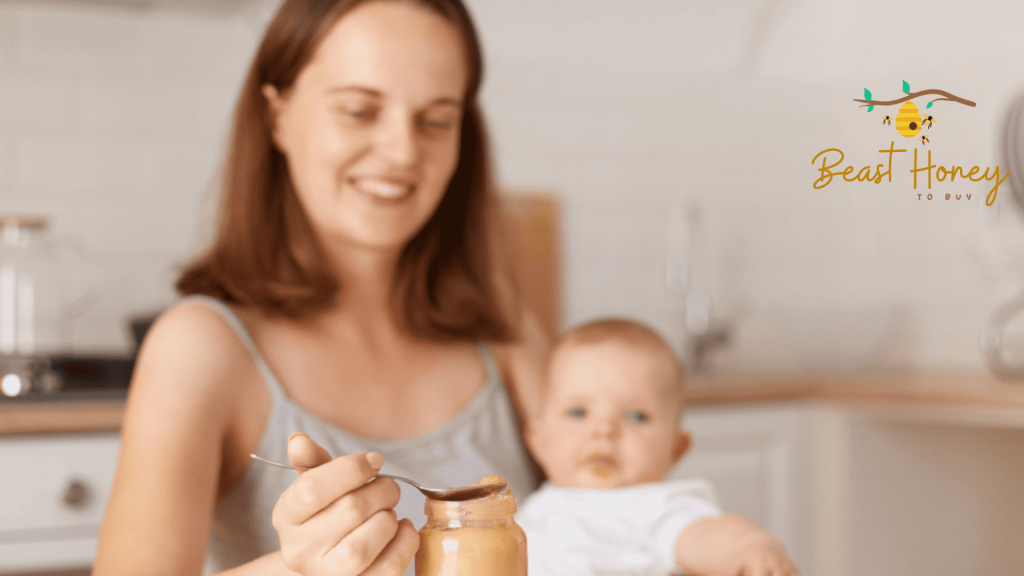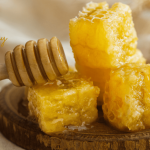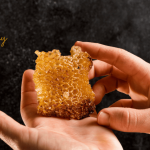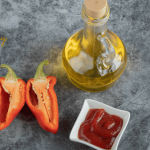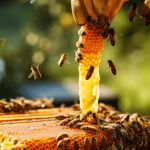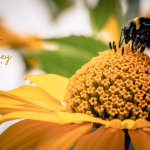Raw honey is a natural sweetener loved by many. It’s packed with nutrients and health benefits. Parents often wonder if it’s safe for their babies. The short answer? No, raw honey is not safe for babies under one year old. But why? And what should parents know? In this blog post, we’ll dive into the risks, safety tips, and alternatives. We’ll keep it simple, clear, and helpful. Let’s get started!

What Is Raw Honey?
Raw honey is pure honey straight from the beehive. It’s not heated or filtered like regular honey. This keeps its natural enzymes, vitamins, and antioxidants. People love it for its taste and health perks. It can soothe sore throats and boost immunity. But for babies, it’s a different story.
Why Is Raw Honey Unsafe for Babies?
Raw honey can be dangerous for babies under 12 months. The main reason is a rare but serious condition called infant botulism. Here’s what you need to know:
The Risk of Infant Botulism
Botulism comes from a bacteria called Clostridium botulinum. This bacteria can live in soil, dust, and even raw honey. Adults and older kids can handle it. Their digestive systems are strong enough. But babies under one have immature digestive systems. The bacteria can grow in their intestines, producing toxins. This leads to infant botulism, which is life-threatening.
Symptoms of Infant Botulism
Infant botulism is rare, but it’s serious. Symptoms can appear within 12-36 hours after eating honey. Watch for:
- Weakness or floppiness in the baby’s body
- Trouble sucking or swallowing
- Weak cry
- Constipation
- Droopy eyelids
If you notice these signs, call a doctor immediately. Early treatment is critical.
How Common Is It?
Infant botulism is rare. In the U.S., about 100-150 cases are reported yearly. Not all are linked to honey. But raw honey is a known risk factor. Even a tiny amount can be harmful. That’s why doctors say no honey for babies under one.
Is Processed Honey Safe?
You might think processed honey is safer. After all, it’s heated and filtered. But experts say no. Heating may kill some bacteria, but it doesn’t guarantee safety. Clostridium botulinum spores can survive high temperatures. So, avoid all honey—raw or processed—for babies under 12 months.
When Is Honey Safe for Kids?
Once your child turns one, honey is generally safe. Their digestive system is stronger. It can fight off botulism spores. But start slowly. Give a small amount and watch for reactions. Some kids may be allergic to honey. Signs of an allergy include rash, swelling, or trouble breathing. If you see these, stop giving honey and talk to a doctor.
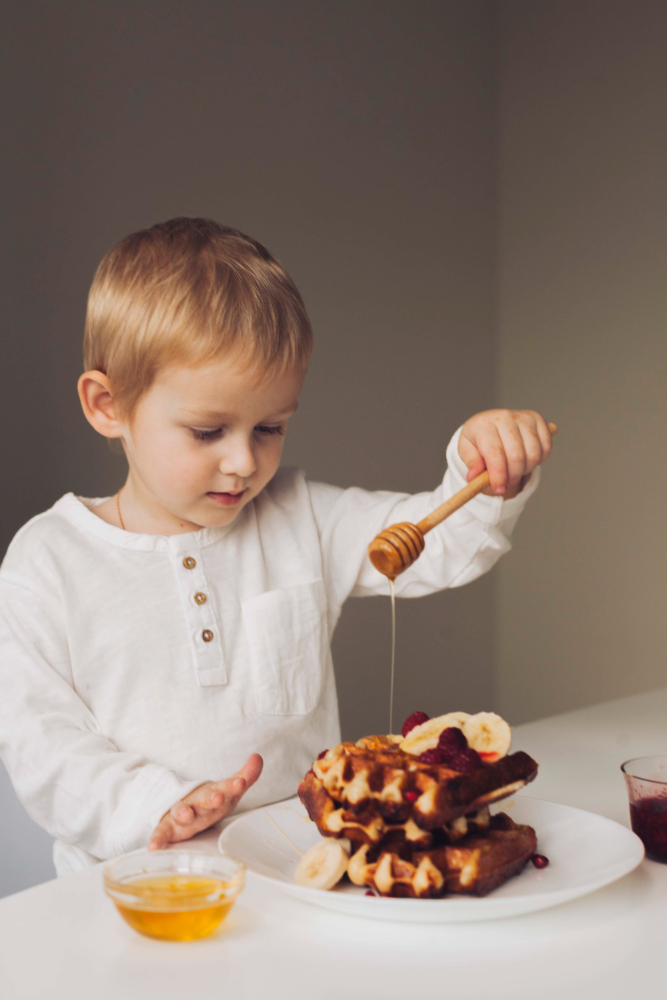
Why Do Parents Want to Give Babies Honey?
Honey sounds like a healthy choice. It’s natural and full of nutrients. Parents may want to use it for:
- Sweetening baby food
- Soothing teething pain
- Easing coughs or colds
- Adding to bottles or cereal
But these uses are risky for babies under one. There are safer options, which we’ll cover later.
Other Foods to Avoid for Babies
Honey isn’t the only food to watch out for. Babies under one should also avoid
- Unpasteurized dairy: Can contain harmful bacteria like listeria.
- Certain fish: High-mercury fish like tuna can harm developing brains.
- Choking hazards: Whole grapes, nuts, or popcorn can cause choking.
- Added salt or sugar: Babies’ kidneys can’t handle them yet.
Always check with a pediatrician before introducing new foods.
How to Spot Honey in Foods
Honey can hide in foods you might not suspect. To keep your baby safe, read labels carefully. Look for honey in
- Cereals and snacks
- Baked goods like cookies or bread
- Sauces or dressings
- Baby foods or formulas
Some products may list “honey powder” or “natural sweeteners.” If you’re unsure, call the manufacturer. When in doubt, skip it.
Safe Alternatives to Honey for Babies
Want to sweeten your baby’s food or soothe their discomfort? Try these safe options:
- Mashed fruit: Bananas or applesauce add natural sweetness.
- Breast milk or formula: Perfect for mixing with cereal or purees.
- Maple syrup (after 1 year): A safe sweetener for older babies.
- Gripe water: Helps with teething or colic, but check with a doctor first.
For coughs or colds, ask your pediatrician for advice. Never give babies cough syrups or honey-based remedies.
Tips for Using Honey Safely After Age One
Once your child is over one, honey can be a healthy treat. Here’s how to use it safely:
- Choose raw or organic honey: It has more nutrients. Buy from trusted brands.
- Start small: Try a half-teaspoon to test for allergies.
- Mix it in: Add to yogurt, oatmeal, or smoothies for a natural boost.
- Store properly: Keep honey in a cool, dry place to prevent spoilage.
- Moderation is key: Too much sugar, even natural, isn’t good for kids.
Example: A Safe Honey Recipe for Toddlers
Here’s a simple recipe for kids over one. It’s a honey-yogurt dip for fruit:
- Mix 1 tablespoon of raw honey with ½ cup of plain Greek yogurt.
- Add a pinch of cinnamon for flavor.
- Serve with sliced apples or bananas.
This is a healthy, tasty snack. Always check for allergies first.
What to Do If Your Baby Eats Honey
Accidents happen. If your baby under one eats honey, don’t panic. Here’s what to do:
- Call your pediatrician or a poison control center right away.
- Watch for symptoms like weakness or trouble feeding.
- Be ready to share details: How much honey? When did they eat it?
Quick action can make a big difference. Most cases caught early are treatable.
Common Myths About Honey and Babies
There are some myths floating around. Let’s clear them up
- Myth: “A tiny bit of honey is fine.”
Truth: Even a small amount can cause botulism. - Myth: “Cooking honey makes it safe.”
Truth: Botulism spores can survive cooking. - Myth: “Only raw honey is risky.”
Truth: All honey is unsafe for babies under one.
Stick to the facts to keep your baby safe.
Why Trust the No-Honey Rule?
The no-honey rule comes from experts. Groups like the American Academy of Pediatrics (AAP) and the CDC back it. They’ve studied infant botulism for years. Their advice is based on science, not guesses. Following it protects your baby from a rare but real danger.
Where to Learn More
Want to stay informed? Check these trusted sources
- American Academy of Pediatrics: Offers baby feeding guidelines.
- CDC: Has info on infant botulism prevention.
- Your pediatrician: The best source for personalized advice.
You can also join parenting forums or groups. Other parents share tips and experiences.
Final Thoughts
Raw honey is a wonderful food, but not for babies under one. The risk of infant botulism is small but serious. Protect your little one by avoiding all honey until their first birthday. Use safe alternatives like fruit purees instead. After age one, introduce honey slowly and watch for allergies. Parenting is full of questions, and you’re doing great by learning the facts. Have a honey tip for toddlers? Share it in the comments! Let’s keep our babies safe and healthy.
For more information, visit , https://besthoneytobuy.com/
